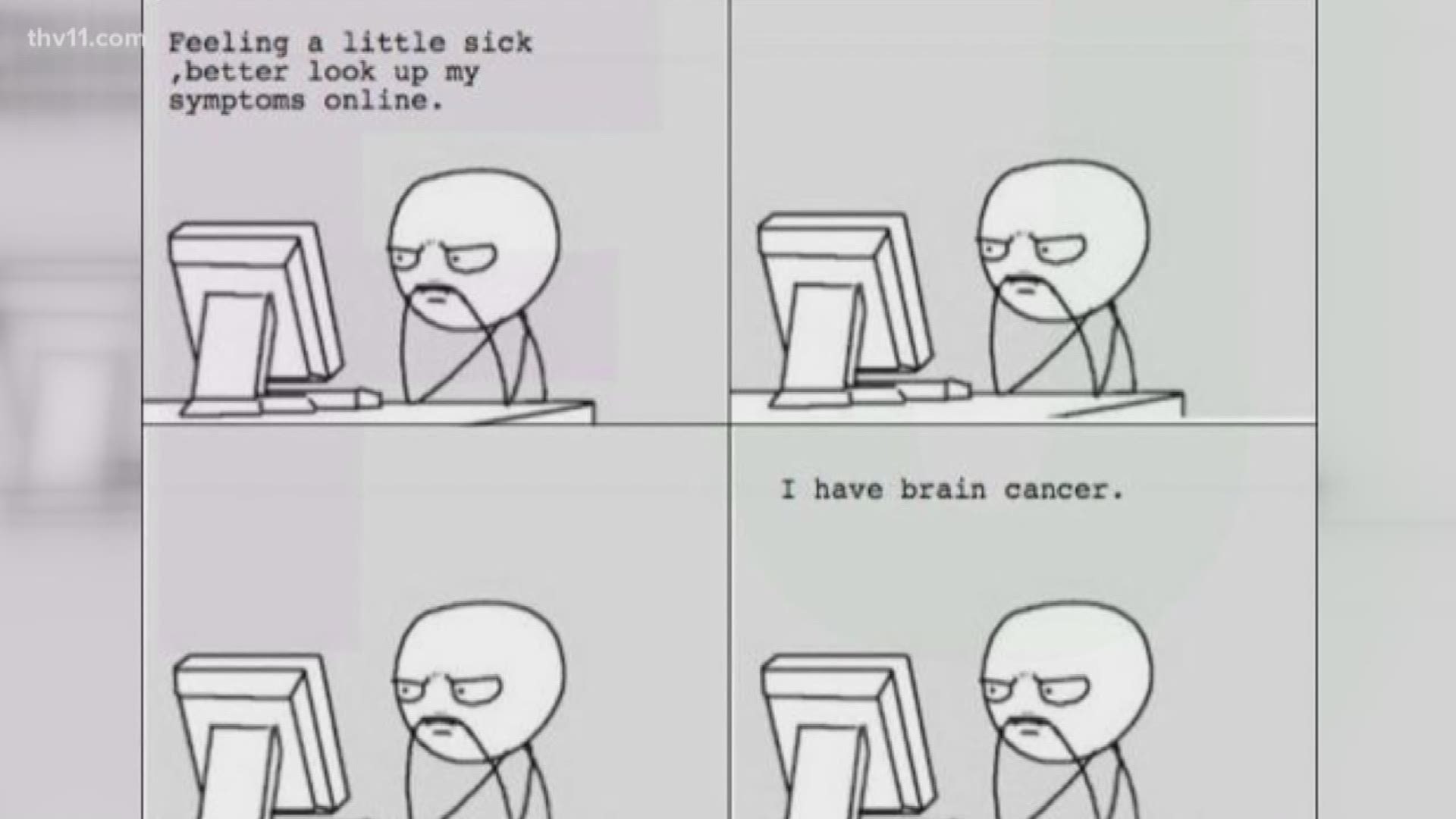LITTLE ROCK, Ark. (KTHV) - You've likely seen the funny viral memes and have felt the panic yourself when searching online about health concerns. According to Pew Research, 80 percent of Internet users have searched for a health-related topic online. But, a simple search could lead to complicated results.
Dr. Michelle Krause, Professor of Medicine at UAMS, said that researching symptoms online can cause unnecessary stress and worry.
“Anytime you have a mild condition like a headache or gastrointestinal complaint and get online and read something, it may point to something that may be very alarming when it may be a mild or self-limited condition,” she said. “People tend to focus on things that are more alarming.”
Krause said it's not a good idea to self-diagnose or self-treat conditions based solely on online information. She said reassurance with your primary care doctor is the most valuable thing to keep in mind when getting information from the internet.
“I’ve had people come in and say they think they’re having a brain aneurysm or cancer everywhere when it’s really a condition like a headache or viral illness,” she said.
While there is a lot of unreliable information online there are ways to get accurate and helpful information online. After you get an actual diagnosis from your doctor, there are ways to find helpful information online from reputable sources.
UAMS health literacy expert, Allison Caballero, trains doctors on how to help patients find reliable information online. She recommends asking your doctor for help and keeping a few tips in mind when reading online articles.
Here are her main tips:
1.) Keep in mind who wrote the article to see if they are credible healthcare providers.
2.) Always check to see when the article was last updated.
3.) Find out why the site and article exists. Be wary of sites with a ton of advertisements or that may be trying to sell you something.
4.) Check to see if the article links to other credible sources and is written in terms that you can understand.
For more tips on finding credible health information online, click here.

